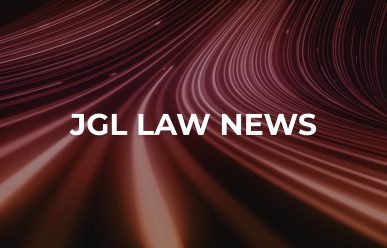Law360, New York (September 25, 2013, 4:23 PM ET) — A defense contractor facing a former employee’s False Claims Act suit over deceptive billing recently filed trade secret and contract counterclaims alleging the whistleblower violated his employment agreement by taking company documents, but experts say the strategy is risky considering the protection afforded to most whistleblowers.
After a former financial planning and analysis manager for Massachusetts-based L-3 Communications SSG-Tinsley Inc. turned over data during discovery that he was using to back up his qui tam suit, the contractor struck back, arguing secrecy and confidentiality provisions in his employment agreement barred him from possessing the data.
Using employment agreements against whistleblowers may be tempting for companies, but it’s hardly a foolproof weapon, attorneys say. Much of the tactic’s success depends on the specific conduct of the qui tam plaintiff prior to filing.
Confidential documents form the basis for most claims of fraud against the U.S., and courts have been generally hostile to counterclaims against relators, according to Kathleen Clark, a professor at Washington University School of Law.
“Employment agreements that purport to limit someone disclosing information are generally seen as unenforceable when someone is exposing fraud,” Clark told Law360. “On the other hand, that is not a license to go with a WikiLeaks approach, taking huge amounts of documents … or copying an entire server.”
Another key factor is how the whistleblower happened upon the evidence of fraud, Clark said, noting that if an employee comes across data that is indicative of defrauding the government in the normal course of their job, the employee can collect the data.
But if the whistleblower’s data collection involves rifling through someone’s office, physically or electronically, the FCA and other statutes generally will not give an employee cover, Clark said.
How the whistleblower came across the information is just one of the factors in a three-part test of whether a whistleblower accused of peaching and employment agreement will be protected, according to Joseph Ahmad of Ahmad Zavitsanos Anaipakos Alavi & Mensing PC.
Ahmad said the relevance of the company data to the alleged fraud and the stakes involved in the claims must also be considered.
“How serious is it? If it’s a trivial accusation of fraud and a serious peach of confidentiality, that might not work,” Ahmad said.
Even considering those factors, Ahmad said he thinks whistleblowers will be protected most of the time, noting the balancing test has to be fairly one-sided for an accused company to prevail.
A whistleblower-friendly decision by the U.S. Department of Labor over the summer further supported employees who take confidential information for whistleblowing purposes, after an administrative law judge ruled that a former Celanese Corp. employee should be afforded whistleblower protection even though he took documents containing personally identifiable information, including employee Social Security numbers.
The ALJ found the ex-Celanese worker’s sole purpose in taking the documents was to support his whistleblower complaint, and as such, his actions were protected under the Sarbanes-Oxley Act.
“The defense bar, I think, is greatly troubled by this decision,” Clark said.
Jay P. Holland, a principal at Joseph Greenwald & Laake PA, said courts have been hesitant to enforce private confidentiality agreements as part of counterclaims against relators in FCA cases, and for good reason.
He cited a Washington, DC, federal court’s ruling in U.S. ex rel. Head v. Kane Co., in which the court found that enforcing a contract that would require a qui tam plaintiff to hand over documents needed at trial to the defendant under investigation would unduly frustrate the purpose of the FCA.
“The driving purpose and force of the FCA is to encourage, not discourage, employees to come forward with evidence of fraud against the government,” Holland said. “So, courts have stated clearly that enforcement of these private agreements not to disclose ‘trade secrets’ or ‘documents’ is void as a matter of public policy.”
However, Nicholas Woodfield of The Employment Law Group PC cast a whistleblower’s protection against such claims as being a bit more up in the air, saying much depends on timing and the employee’s current status.
If a whistleblower obtains damning information, but doesn’t act immediately, that whistleblower might not be protected.
“If you’ve got this material and you give it to the U.S. attorney straight away, arguably in that case you’ll be insulated, if it’s on point and very focused,” Woodfield said.
He added that it’s beneficial if a whistleblower is still working at the target company, saying a relator is typically in better shape in that case than if they use the information when they’re not allowed to have it.
Ultimately, Woodfield said businesses are in a very reactive situation, with the success of such counterclaims depending on the degree of care taken by the whistleblower.
“I don’t think there’s a single court that ever said an employee cannot take evidence of fraud to the U.S. attorney. The question then becomes: What is responsible behavior on the part of the employee?” Woodfield said. “It’s about respecting obligations they have versus what minimum disclosure is necessary to substantiate an FCA claim.”
–Editing by John Quinn and Katherine Rautenberg.

